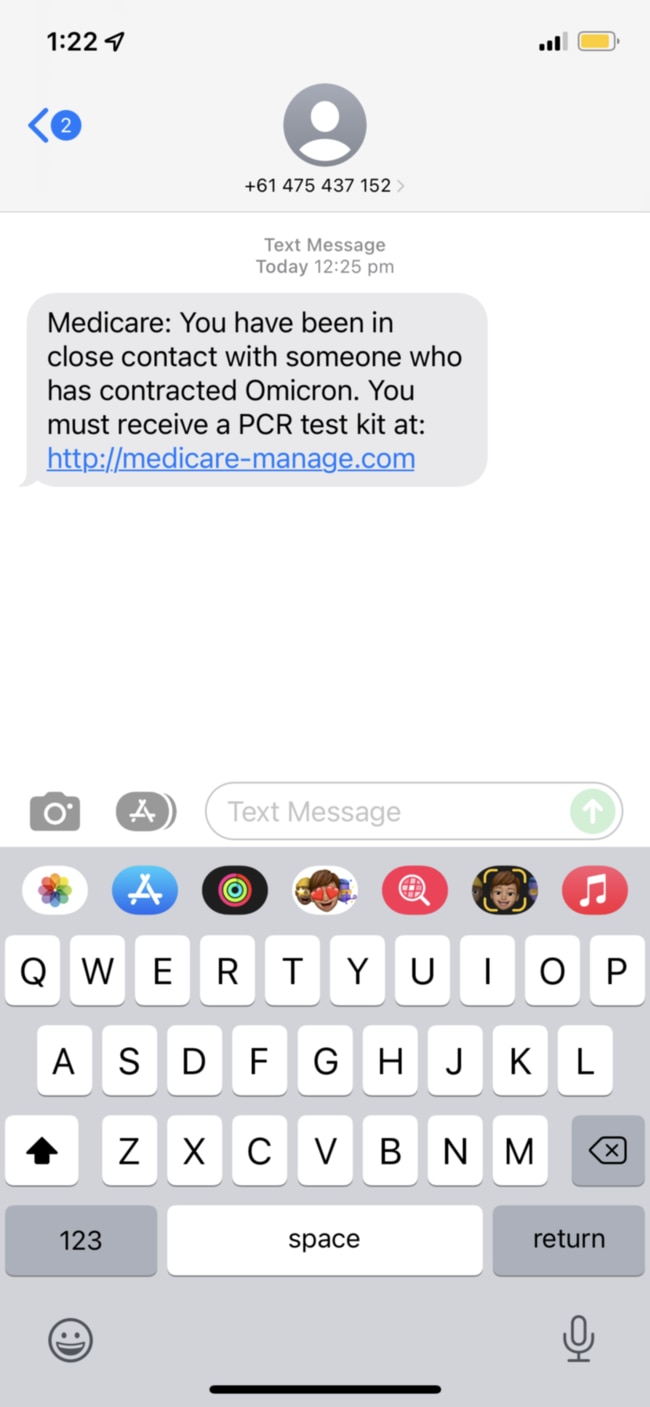Services Australia warns Aussies of Medicare text scam
Australians have urged to be on the lookout for a text message regarding Covid-19 tests.

Australians have been warned to be on the lookout for a new text scam telling recipients that they need to get tested for Covid-19.
Services Australia advised Aussies to delete the message from scammers pretending to be Medicare, and warned people against clicking the link as it could contain malware.
The text message, which has been circulating for roughly a week, tells recipients to order a free PCR test kit and directs them to a website that imitates Medicare.
“Medicare: You have been in close contact with someone who has contracted Omicron,” the text message reads.
“You must order a free PCR Test Kit.”

Services Australia assured people that they would never ask people to click on links or attachments via a text message.
“Scammers may ask you to confirm your details by opening an internet link or responding with personal information,” the website said.
“We‘ll never ask you to click on links or attachments, except for links:
– on our website
– on our official social media accounts
– in your myGov Inbox, once you‘ve signed in.”
According to ScamWatch, Australians have lost more than $205 million to scams between January 1 and May 1 this year.
The watchdog said text message scams up 54 per cent between those two dates, surpassing phone calls as the most common contact mode for scammers.
ACCC Deputy Chair Delia Rickard warned Aussies to hang up if they receive an unexpected phone call requiring them to input personal information.

“If you receive an unexpected text message or phone call from someone offering you an opportunity to invest, it is likely a scam and you should immediately hang up or delete the message,” she said.
In April, telecommunications giant Telstra introduced an SMS scam filter to stop malicious text messages before they reach thousands of phones.
“Scam text messages are not only annoying, they’re also malicious and have the potential to steal your money or install malware to steal personal information, hack your internet banking and infect your contacts,” the company said in a statement.



